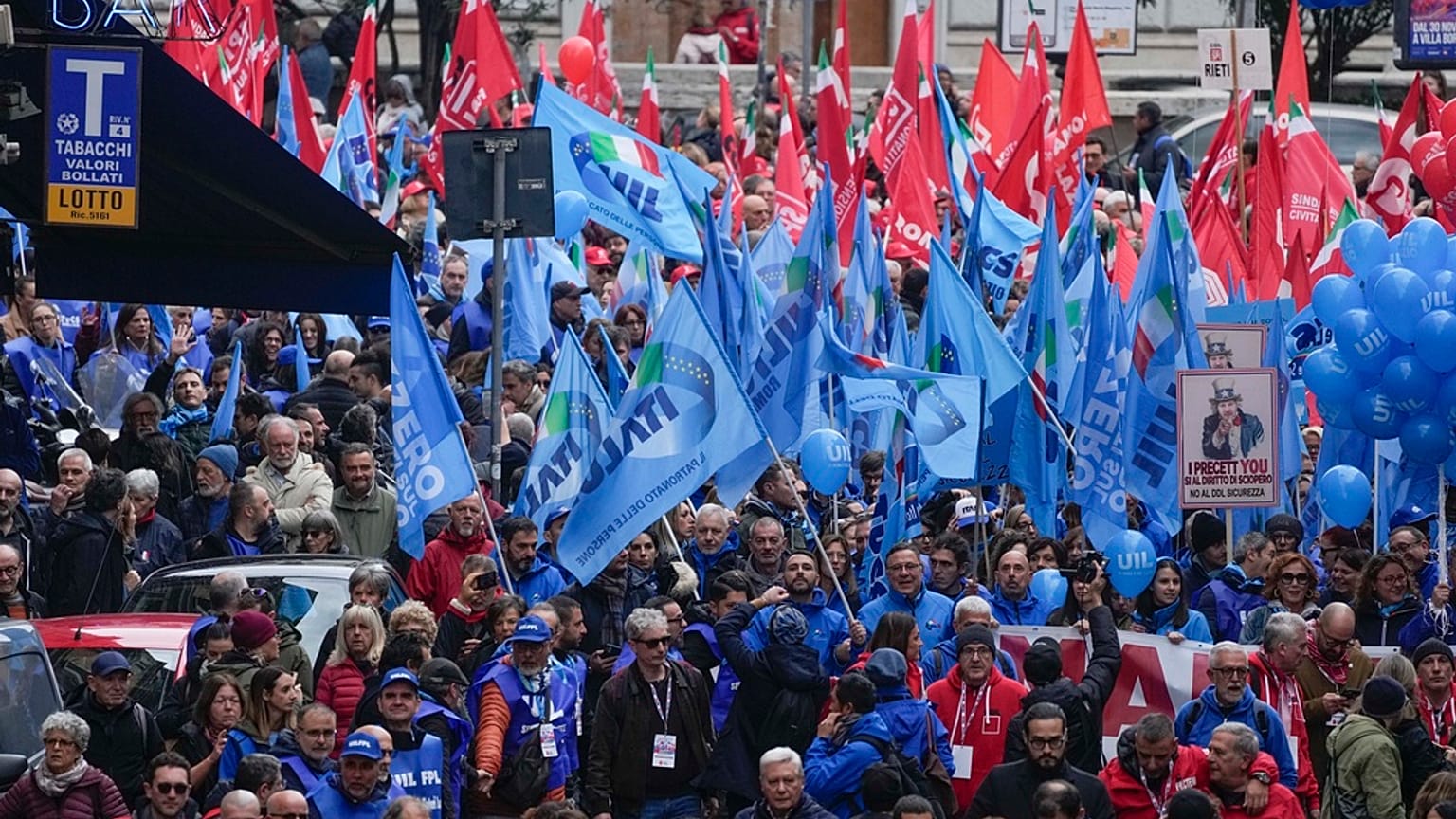Unions stated that salary raises for public servants included in the budget law are not enough to bridge the gap with high inflation rates in the past three years.
Thousands of nurses, teachers, and other public sector employees in Italy abandoned their jobs on Friday to fight the government's budget plan. Unions organised a general strike with 43 demonstrations across the country.
Protesters denounce a decline in spending power, persistently low salaries, and government policies that have weakened public services. They also are pressing for a more equitable distribution of profits from private companies to workers.
“These protests don’t just speak to the government,’’ Maurizio Landini, head of the CGIL union, told reporters in Bologna. “They speak also to entrepreneurs, managers and businesses, who in these years have made profits like never before.”
The CGIL and UIL called for an eight-hour strike against Premier Georgia Meloni's latest budget, but Transport Minister Matteo Salvini imposed an injunction limiting the strike in the transport sector to four hours.
The strike forced ITA Airlines to cancel dozens of domestic and international flights and hit schools, hospitals and local transport.
Costs too high, salaries too low
The Friday event was the first general strike since last November. Unions faced possible sanctions for involving the health care and justice sectors, which have staged strikes recently. The Italian railway, which was also the target of recent labour actions, was exempted.
Italy’s healthcare sector has been suffering staffing shortages that forced the hiring of nurses from abroad, with care in the poorer southern parts of the country particularly lagging that in the more prosperous north.
“There are many people who go abroad because the salaries are too low,’’ said Anna Salsa, a member of the UIL health care union, at the protest in Rome. “We are forced to do double shifts to give the minimal levels of essential care.”
Demonstrators also cited persistent increases in the cost of basic necessities. Despite indications that inflation is cooling, the Codacons consumer protection lobby said that grocery costs for a family of four have risen by €238 in 2024 compared with last year, forcing many families to reduce their consumption.
While starting salaries in Italy are aligned with the rest of Europe, pay increases do not keep pace, said Maurizio Del Conte, a labour law expert at Milan’s Bocconi University. As a result, Italy’s gross median salary of €35,000 a year is at the low end of European averages, well behind its G7 partners in France and Germany.
Del Conte noted that such protests are historically more influential when engaging centre-left governments, which are friendly to unions, rather than conservative governments, such as Meloni's far-right-led government.















